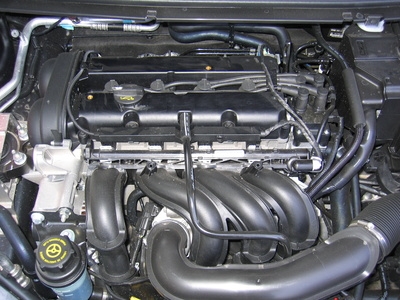
Synthetic lubricating oil was first produced in large quantities in Germany during World War II, from coal and methane gas. It can be made from other hydrocarbons, such as ethylene gas and ordinary crude oil. According to the Valvoline.com web site, synthetic oil differs from ordinary motor oil in that it is processed to form uniform lubricating molecules and to eliminate natural contaminants like sulfates. Additives tailor the molecules for different lubricating tasks.
Synthetic motor oils are better than ordinary oils at handling extreme hot and cold temperatures, as well as heavy load conditions, such as trailer towing, per the Valvoline.com website. This property of temperature resistance ensures smooth engine performance under extreme conditions. Synthetics also are better at resisting the buildup of sludge and other harmful deposits in engines. And their molecular uniformity provides a superior lubricating film between moving engine parts.
The major disadvantage in using synthetic oils is their cost, says the J.D.Power.com automotive website. They can be up to four times more expensive than standard motor oils, depending on brand and formulation. But synthetics last longer, roughly doubling the interval between oil changes. This partially offsets the higher cost. For those who don't operate their cars under extreme temperatures or haul heavy loads, less-expensive ordinary motor oil works fine, says J.D. Power.
When synthetic oils entered the mass consumer marketplace in the 1980s, some formulations reacted adversely with the engine seals in cars that had been run on regular motor oil, causing oil leaks. And synthetics, being somewhat thinner than regular oils, caused oil to leak past the piston rings in older, high-mileage engines. For these reasons, mechanics advised against switching between regular and synthetic motor oils.
The Valvoline.com website states oil company chemists changed formulas to eliminate seal problems and developed synthetics specifically formulated for high-mileage car engines. Today, says Valvoline.com, you can switch back and forth or even mix regular and synthetic oils without harm.